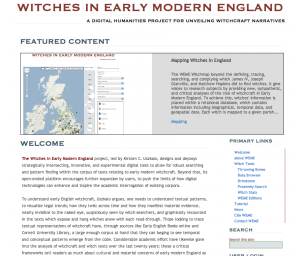Digital humanities is a term that risks losing all useful meaning as scholars apply it to an ever increasing range of projects. Many of these projects are “digital” only insofar as they put material online, often without providing any tools that facilitate the study of that material. A collection of on-line texts, for example, is not a robust digital humanities project, as far as I am concerned.
I find myself thinking a lot about opportunities offered by digital projects. Right now, that thinking takes place in the context of my course on plagues and epidemics. I think there is an opportunity for students to work collaboratively on a project that would make early modern plague texts available online and would allow people to study these texts beyond what can be done through Early English Books Online (EEBO). Such study would include textual analysis for words, mapping the texts geographically and chronologically, comparing texts, and collating both symptoms and treatments.

Today I stumbled across an ambitious model in Witches in Early Modern England. This website indicates some of the promises that DH offers. In addition to collecting and making available a mass of primary sources, the people behind this project — led by Kirsten C. Uszkalo — have envisioned various tools that will allow people to study these texts in interesting ways. I don’t yet know if these tools merely facilitate research that otherwise would have been possible if laborious or if they enable people to ask new questions. There is surely a spectrum between those two positions—I can think of many projects that would be possible but not feasible without some sort of database-mapping-textual analysis backend. In any event, it looks promising.
Uszkalo’s Witches in Early Modern England is certainly far beyond what I could do with students, at least in a single term, but it does point to some of the ways I can think about a plague project.